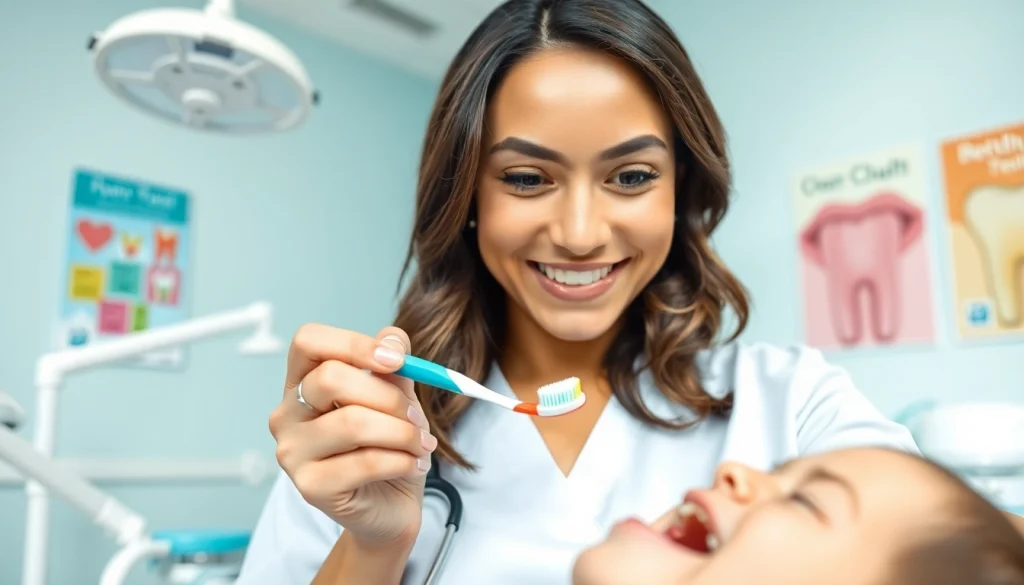Maintaining Optimal Hygiene: Essential Dental Care Practices for a Healthy Smile

Understanding Hygiene and Its Importance in Dental Care
Hygiene is a vital aspect of our daily lives that significantly impacts our overall health and well-being, particularly in dental care. The term hygiene refers to practices and conditions that help maintain health and prevent disease, particularly through cleanliness. Failing to adhere to adequate hygiene practices can lead to serious health issues, including oral diseases such as cavities and gum disease. Therefore, understanding and adopting proper hygiene habits is essential for maintaining not only a healthy smile but also overall health. In this article, we will delve deeper into the various aspects of hygiene that pertain to oral care, providing valuable insights and practical guidance.
The Definition of Hygiene
Hygiene encompasses a range of practices aimed at promoting cleanliness and preventing illness. It includes personal habits such as regular bathing, handwashing, and maintaining clean surroundings. In the context of dental care, hygiene specifically involves practices that help keep the mouth and teeth free from harmful bacteria and plaque. The hygiene practices we adopt, from brushing our teeth to regular dental check-ups, play a crucial role in sustaining our oral health. Hygiene can be broken down into several categories, including:
- Personal Hygiene – Focused on cleanliness of the body and hair.
- Food Hygiene – Concerned with the preparation and consumption of safe food.
- Environmental Hygiene – Deals with keeping our surroundings clean.
- Oral Hygiene – Encompasses strategies to maintain mouth cleanliness.
The Impact of Poor Hygiene on Oral Health
Poor hygiene can have dire consequences for our oral health. Neglecting basic dental hygiene practices can lead to the accumulation of plaque and tartar, which can result in cavities and gum disease. According to the Centers for Disease Control and Prevention (CDC), nearly 50% of adults over age 30 have some form of periodontal disease, which can lead to tooth loss if left untreated. The effects of poor oral hygiene extend beyond the mouth, as research shows connections between oral health issues and serious systemic conditions such as heart disease, diabetes, and respiratory infections.
The Connection Between Hygiene and Overall Health
The link between oral hygiene and overall health is a growing area of research. Studies have demonstrated that the bacteria responsible for gum disease can enter the bloodstream, affecting other organs and systems. For instance, individuals with gum disease are at an increased risk for heart disease and stroke due to the inflammatory response triggered by bacteria. Additionally, maintaining good hygiene can enhance mental well-being, as poor oral health is often linked to feelings of shame or embarrassment related to one’s appearance. This interconnectedness of hygiene and health underscores the need for comprehensive hygiene practices.
Daily Hygiene Practices for Optimal Oral Health
Implementing effective daily hygiene routines is paramount for preserving optimal oral health. Here are some essential practices that should be incorporated into your daily routine:
Effective Brushing Techniques
Brushing your teeth is foundational for maintaining oral hygiene. It’s essential to use a toothbrush with soft bristles and fluoride toothpaste. The American Dental Association recommends brushing at least twice a day for two minutes each time. Follow these effective brushing techniques:
- Position your toothbrush at a 45-degree angle to your gums.
- Use short, gentle strokes to brush the outer, inner, and chewing surfaces of each tooth.
- Make sure to brush your tongue to remove bacteria and freshen breath.
Importance of Flossing for Hygiene
While brushing is critical, it cannot reach every crevice between the teeth. Daily flossing helps eliminate food particles and plaque that brushing may miss. To effectively floss, follow these steps:
- Use about 18 inches of dental floss, wrapping most of it around your middle fingers.
- Gently slide the floss between your teeth using a sawing motion.
- Curve the floss around the base of each tooth, ensuring you go beneath the gum line.
Using Mouthwash: A Step Towards Comprehensive Hygiene
A mouthwash can help rinse away leftover food particles and bacteria, enhancing overall hygiene. Selecting a mouthwash with antimicrobial properties can provide additional protection against gum disease and bad breath. Mouthwash should complement, not replace, brushing and flossing. Swish it around your mouth for approximately 30 seconds to ensure full coverage.
Advanced Hygiene Strategies: Professionals’ Recommendations
Integrating advanced hygiene strategies can elevate your oral care routine. These strategies, often recommended by dental professionals, provide a thorough approach to maintaining optimal hygiene.
Regular Dental Check-Ups and Their Role in Hygiene
Routine dental check-ups are crucial for preventing potential oral health issues. During these visits, your dentist can remove tartar buildup that brushing cannot address and identify early signs of disease or decay. The general recommendation is to schedule a dental visit at least twice a year. This not only helps maintain your hygiene but can also significantly reduce the likelihood of more extensive dental procedures in the future.
Diet’s Influence on Dental Hygiene
The food you consume plays a critical role in maintaining dental hygiene. A balanced diet rich in fruits and vegetables can promote oral health. Foods high in fiber can help clean teeth naturally and stimulate saliva production, which aids in neutralizing acids produced by bacteria. Conversely, limiting sugary snacks and beverages can reduce the risk of cavities, as sugar provides fuel for harmful bacteria. Remember that hydration is equally important; drinking water helps wash away food particles and bacteria, contributing to better hygiene.
Utilizing Technology for Improved Hygiene Practices
With advancements in technology, numerous tools and apps are available to support your oral hygiene efforts. Electric toothbrushes often provide efficient cleaning modes and timers to ensure adequate brushing duration. Additionally, various dental health apps can track your brushing habits, set reminders for dental appointments, and provide personalized oral care tips, making it easier to maintain optimal hygiene.
Teaching Children About Hygiene: Building Healthy Habits Early
Establishing good hygiene practices early in life is essential for lifelong oral health. Teaching children about hygiene can be a fun and engaging process.
Fun Ways to Teach Kids About Brushing
Creating a positive association with dental hygiene can make a significant difference. Here are some enjoyable ways to teach kids about brushing:
- Use colorful toothbrushes and child-friendly toothpaste flavors to encourage their use.
- Sing a fun brushing song or use an app that plays music to keep them engaged during the two-minute brushing routine.
- Make brushing a family affair by brushing together, showcasing that it’s a fun and important activity.
Role of Parents in Ensuring Good Hygiene
Parents play a critical role in reinforcing the importance of hygiene. Parents should monitor their children’s brushing and flossing techniques, provide encouragement, and set a good example by maintaining their own oral hygiene. Teaching them about the consequences of neglecting dental care can instill a sense of responsibility toward their health.
Age-Appropriate Tools for Teaching Hygiene
Utilizing age-appropriate tools can enhance learning about hygiene. For toddlers, finger brushes or soft-bristled brushes are ideal, while older children can use regular toothbrushes with fun designs. Educational books and videos about oral health can also reinforce the importance of hygiene in an engaging manner.
Addressing Common Misconceptions About Hygiene
Many misconceptions can hinder proper hygiene practices. It’s important to identify and address these myths to promote accurate understanding.
Myths vs. Facts: Debunking Hygiene Misconceptions
One common myth is that if teeth don’t hurt, they must be healthy. Regular check-ups are essential, as many dental issues can be asymptomatic until they become severe. Another misconception is that mouthwash alone can replace brushing and flossing, which is untrue. Mouthwash is a complementary product that cannot effectively replace mechanical cleaning.
The Role of Cultural Practices in Hygiene Perceptions
Cultural influences can shape one’s perception of hygiene. In some cultures, certain dental practices may prioritize traditional methods over modern techniques, sometimes leading to inadequate care. Open discussions about different approaches can help bridge gaps in understanding and promote improved hygiene practices universally.
When to Seek Professional Help for Hygiene Issues
If an individual notices persistent signs of trouble such as bleeding gums, persistent bad breath, or sudden changes in dental health, seeking immediate professional help is important. Early intervention can make a significant difference in treatment outcomes and overall health.







